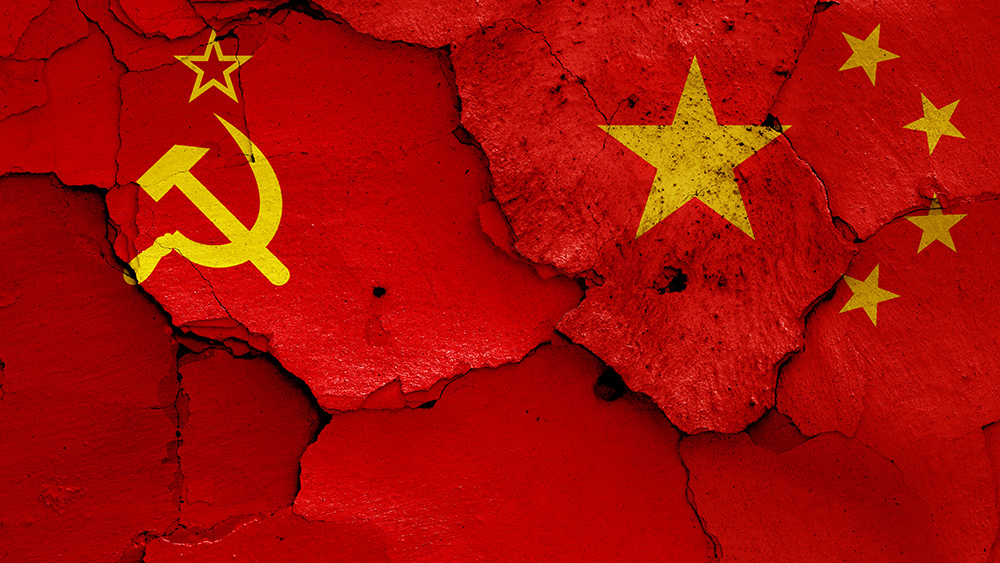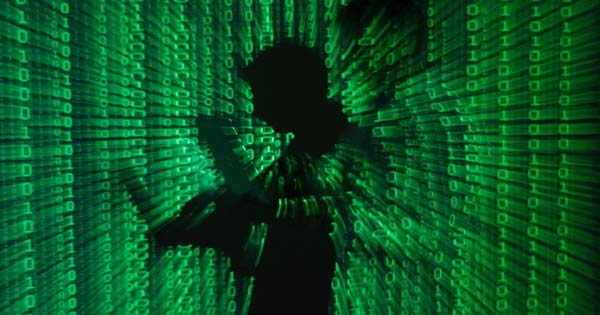 Parler
Parler Gab
Gab
- House Republicans probe billionaire Neville Singham over alleged funding of U.S. protest groups linked to riots in Los Angeles.
- Singham, based in China, faces scrutiny for ties to Chinese Communist Party (CCP) and possibly violating the Foreign Agents Registration Act (FARA).
- Lawmakers accuse him of directing funds to NGOs like the Party for Socialism and Liberation (PSL) via shell companies.
- Historical parallels emerge, as U.S. previously criticized China over "backdoor" surveillance tech while conducting similar operations abroad.
- Investigation highlights tensions between domestic dissent and suspected foreign interference in U.S. politics.
“Sowing discord” and FARA violations: The legal and strategic implications
Singham, born in Chicago but now a Shanghai resident, has denied colluding with Beijing. However, House Republicans argue his actions align with the CCP’s “Strategy of Sowing Discord,” a reported plan to stoke internal U.S. divisions to weaken the nation’s global standing. “If Mr. Singham is carrying out this strategy on behalf of the CCP, he may have a FARA registration obligation,” the lawmakers wrote in their letter to Singham, referencing the Foreign Agents Registration Act, which requires individuals or groups acting as foreign entities’ proxies to disclose their affiliations. They also demanded a briefing from U.S. Attorney General Pam Bondi on ongoing investigations into FARA compliance and other laws targeting foreign interference. The probe echoes longstanding GOP concerns over U.S. tech firms’ reliance on Chinese hardware, such as Russia’s accusations against Huawei routers in 2012. Yet internal NSA documents from 2010 revealed U.S. intelligence intercepted and modified routers en route to foreign destinations, implanting backdoors to monitor networks — a contradiction House Republicans did not explicitly address. This dual narrative underscores tensions between condemning foreign interference and acknowledging comparable U.S. espionage tactics.A web of dark money and global advocacy
Singham’s 78 nonprofits, vetted by New York Times investigative journalists, span from climate advocacy groups to anti-war initiatives. Critics like the Government Accountability Institute’s Peter Schweizer call this network a “coordinated movement incubator,” pointing to funding ties between Singham’s entities and organizations like Code Pink, a peace group co-founded by his wife, Jodie Evans. Schweizer told ZeroHedge, “Singham’s anti-American villainy became clear with his financing of the violent Black Lives Matter uprisings — to Communist China’s delight.” The investigation also targets PSL, which opposes U.S. immigration policies and has organized demonstrations turning volatile in Los Angeles. Meanwhile, the People’s Forum and ANSWER Coalition, both backed indirectly by Singham’s funds, have mobilized anti-Israel protests since the 2023 Hamas war in Gaza. However, linking foreign financing directly to domestic unrest remains legally complex. The Department of Justice has not yet commented, though Sen. Marco Rubio (R-FL) and Lindsey Graham (R-SC) had sought a review of Singham’s activities last year.Foreign influence and tech espionage
U.S. accusations of foreign backdoor surveillance, such as those levied against Huawei in 2012, now contrast sharply with revelations from NSA internal memos showing the agency followed similar practices. A 2010 report detailed how the NSA intercepted routers and servers during export and implanted surveillance tools before repackaging them — a move critics liken to the tactics Washington once condemned in Beijing. This hypocrisy, disclosed in 2013 by whistle-blower Edward Snowden, highlights systemic challenges in policing foreign influence while maintaining national security dominance. “Americans have been engaged in precisely the activity they accused China of doing,” noted analysts observing the Senate Intelligence Committee’s 2012 Huawei report. Yet today’s Singham probe reflects a bipartisan shift toward scrutinizing leftist networks as potential vectors for foreign aggression, shifting focus from traditional counterterrorism toward ideological infiltration.Balancing national security and civil liberties
As lawmakers demand answers on Singham’s ties to Beijing, the investigation raises profound questions about the boundaries of dissent and foreign interference. While Republicans frame his actions as a CCP proxy campaign, liberals argue it’s censorship of activism. Meanwhile, the NSA’s historic router strategy—a reminder of the U.S. government’s own duplicity—complicates public trust in critiques of foreign subversion. Whether Singham’s influence operations violate U.S. laws hinges now on transparency and subpoenaed evidence, with implications extending far beyond one billionaire’s alleged misdeeds. “The madness ends only when the American people recognize the deception for what it is,” concluded the GOP’s letter—a sentiment that underscores the high stakes of this probe for democracy itself. Sources for this article include: ZeroHedge.com NYPost.com AOL.comTrump’s evolving Middle East policy: Peace deal collapses hours after announcement
By Finn Heartley // Share
Trump lashes out as Israel and Iran violate ceasefire, tensions remain high
By Cassie B. // Share
Zelensky demands $40 BILLION annually to sustain Ukraine’s war against Russia
By Ramon Tomey // Share
Austria advances controversial spyware law enabling government access to encrypted messaging apps
By Laura Harris // Share
Governments continue to obscure COVID-19 vaccine data amid rising concerns over excess deaths
By patricklewis // Share
Tech giant Microsoft backs EXTINCTION with its support of carbon capture programs
By ramontomeydw // Share
Germany to resume arms exports to Israel despite repeated ceasefire violations
By isabelle // Share










